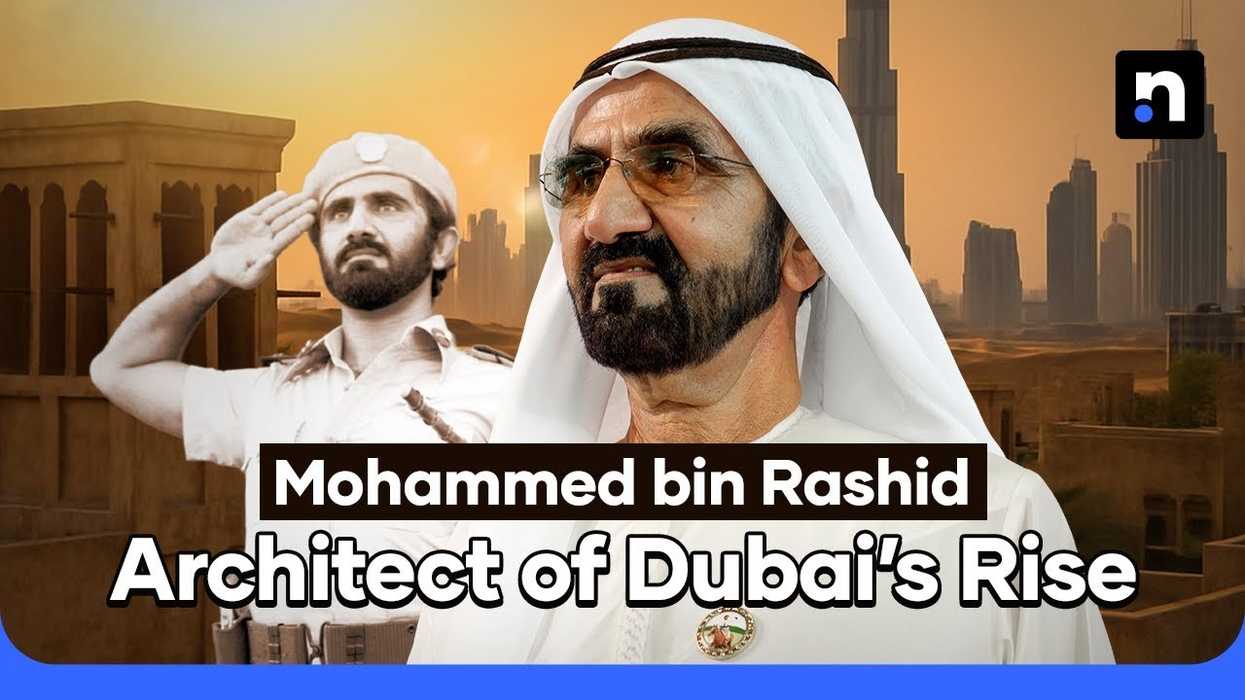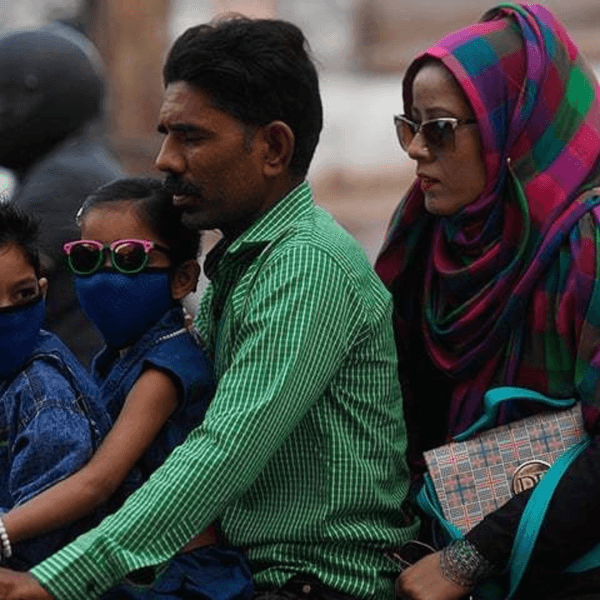From Shindagha to the Skyline: The Life and Legacy of Sheikh Mohammed bin Rashid Al Maktoum
A journey of vision, leadership, and resilience—from desert courtyards to global acclaim
Riham Darwish
Senior Producer
A digital journalist with a strong background in news reporting and editing, in written and visual forms.
Before Dubai became a global symbol of ambition and innovation, it was a quiet coastal town where wind whispered through courtyards and children ran barefoot through the sand.
Among them was a child named Mohammed—curious, observant, and already absorbing the weight of legacy and the promise of the future.
Born into royalty, raised by wisdom
Sheikh Mohammed bin Rashid Al Maktoum was born into one of the most influential families in the region, the Al Maktoum family, which has ruled Dubai. His upbringing was steeped in tradition and guided by two extraordinary figures: his father, Sheikh Rashid bin Saeed, and his mother, Sheikha Latifa bint Hamdan Al Nahyan. His mother, the daughter of Abu Dhabi’s former ruler, was a gentle yet resilient presence who instilled in her children values of strength, grace, and humility. His father, on the other hand, was a quiet strategist, teaching Mohammed through action rather than words. From a young age, Sheikh Mohammed was exposed to the desert’s lessons: how to navigate by the stars, how to observe before speaking, and how to lead with responsibility.
His childhood memories were filled with rides across the dunes, lessons beside his brother Maktoum, and nights spent in reflection. One cherished moment he often recalled was when Maktoum gently woke him to witness the birth of a foal—a symbol of new beginnings that stayed with him for life.
Education beyond borders
Mohammed’s education extended beyond Dubai. As a young student in the UK, he received more than academic knowledge—he learned self-reliance, frugality, and independence. With a modest weekly allowance, he navigated unfamiliar systems, often skipping meals or doing odd jobs like collecting leaves to afford a train ride to a horse race. His time abroad taught him the value of responsibility—an education shaped as much by character as by curriculum.
A journey into leadership
His formal journey into leadership began early. At just 19, he was entrusted by his father to help establish a defense force for the soon-to-be-formed United Arab Emirates. After training at the Mons Officer Cadet School in the UK, Sheikh Mohammed returned and played a critical role in unifying the country’s armed forces. When the UAE was officially formed in 1971, he was appointed Minister of Defense, the youngest in the world at the time.
Following the death of his father in 1990 and later his brother Sheikh Maktoum in 2006, Sheikh Mohammed became the Ruler of Dubai and Vice President and Prime Minister of the UAE. In this role, he introduced a wave of government reform and innovation, aiming to position the UAE as a global leader by its 50th anniversary.
The vision that built Dubai
Inspired by his father’s projects like Jebel Ali Port and Port Rashid, Sheikh Mohammed saw Dubai’s potential to be more than just a trading post—it could be a global hub. He drove the launch of Emirates Airlines, developed Dubai International Airport, and introduced open-skies policies. He spearheaded the creation of the Jebel Ali Free Zone—the first in the region to offer full foreign ownership—and oversaw the growth of DP World into a global maritime leader.
Projects like Dubai World Central and Al Maktoum International Airport, designed to handle 160 million passengers annually, solidified Dubai’s reputation as a logistics and commerce giant. His vision transformed a fishing village into one of the most connected cities on Earth.
Cultural legacy and education
Sheikh Mohammed is also a celebrated Nabati poet, whose verses—once published under pseudonyms like Nedawi and Saleet—explore themes of love, leadership, and identity. His collections, Poems from the Desert and 40 Poems from the Desert, have been praised across the Arab world. Through poetry, he keeps cultural identity alive and expresses the emotional depth behind his decisions.
Beyond poetry, his commitment to knowledge and empowerment is clear. He established the Emirates Literature Foundation, launched the Arab Reading Challenge, and created the Madrasa e-learning platform, providing millions of students with free Arabic education. His philanthropic efforts, like the Mothers’ Endowment, reflect a deep belief in compassion, literacy, and equal opportunity.
Family, faith, and future
Sheikh Mohammed is the proud father of at least 26 children, many of whom are public figures in government, sports, and culture. From Sheikh Hamdan, Dubai’s Crown Prince and a symbol of youthful leadership, to Sheikha Latifa and Sheikha Maitha, who champion culture and women’s empowerment, his children reflect the values of discipline, humility, and ambition.
A legacy in motion
Today, Dubai is one of the most digitally advanced, culturally vibrant, and economically active cities in the world. Its transformation is inseparable from Sheikh Mohammed bin Rashid Al Maktoum’s vision—a vision rooted in heritage, driven by discipline, and guided by a profound belief in possibility.
From the silent majlis of his grandfather to the tallest towers on Earth, his journey reminds us that true leadership begins not with power, but with purpose.








Comments
See what people are discussing